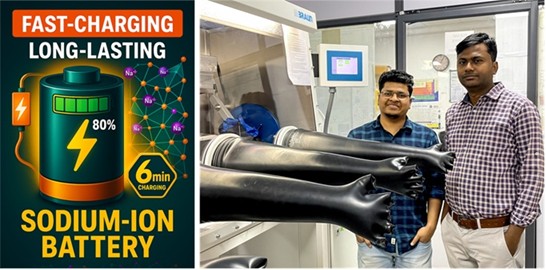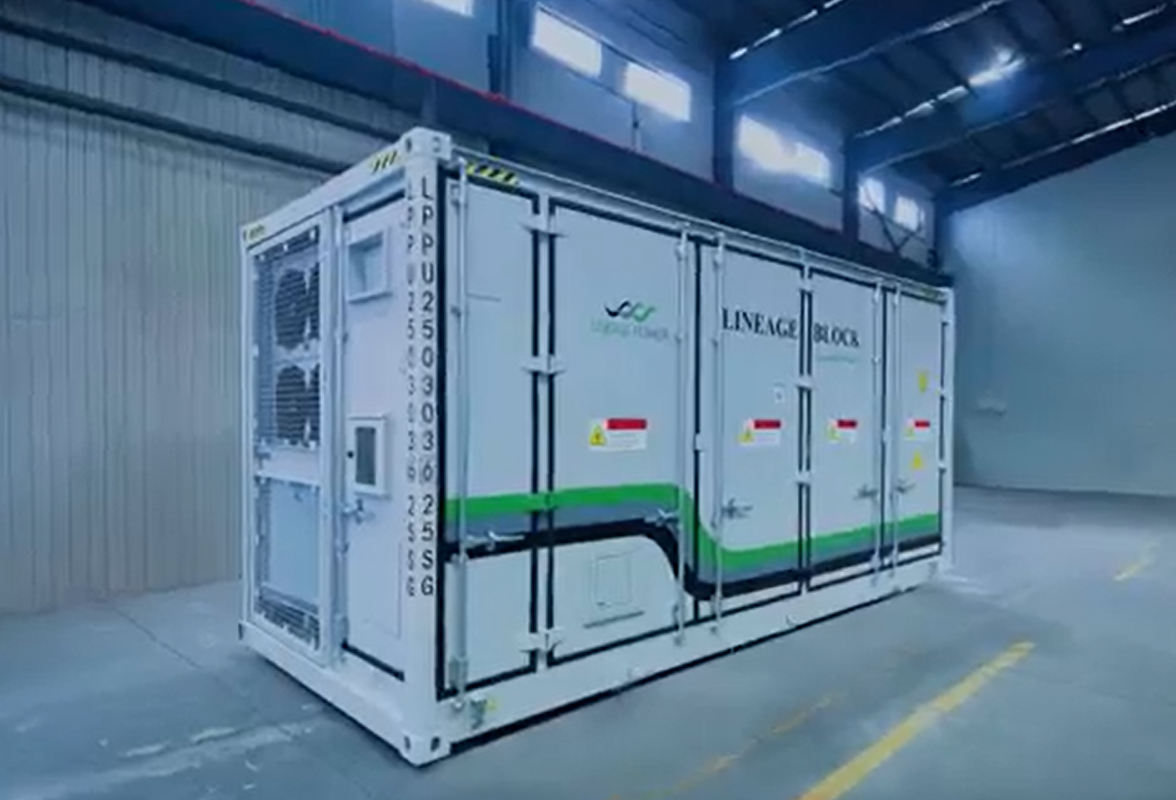From ESS News
Researchers at the Jawaharlal Nehru Centre for Advanced Scientific Research (JNCASR) in Bengaluru have developed a sodium-ion battery (SIB) anode with fast-charging capability and long cycle life.
The work focuses on a NASICON-type anode material, which was engineered through nanoscale particle sizing, carbon coating, and aluminium doping to improve ionic conductivity and structural stability.
According to the team, the resulting cell can charge to 80 percent in six minutes and retains capacity over more than 3,000 cycles. These results were obtained through lab-based electrochemical cycling and supported by quantum simulations. The researchers, led by Premkumar Senguttuvan and PhD candidate Biplab Patra, note that the battery’s performance addresses common shortcomings in conventional SIBs, such as sluggish charging and reduced longevity.
In a related study, the team also introduced a second NASICON-type anode material which demonstrated an energy density of 98 Wh/kg in full-cell configuration. That cell retained 80 percent of its capacity after 1,000 cycles at a 5C rate and showed a specific capacity of 140 mAh/g at 1.4 V. These values were again confirmed under laboratory test conditions.
Both studies focus solely on anode development, with cathode details and electrolyte formulations mentioned in passing. No safety testing data was included. Likewise, the work does not address manufacturing scalability, cost per kWh, or supply chain implications, though the broader motivation includes finding ways around the reliance on imported lithium, by using relatively abundant sodium.
The research remains at an early stage, but is being promoted in India as a potential step toward energy storage self-sufficiency under the Atmanirbhar Bharat policy framework. The findings are published in Advanced Materials and Advanced Energy Materials, under the title “Stabilizing Multi-Electron NASICON-Na1.5V0.5Nb1.5(PO4)3 Anode via Structural Modulation for Long-Life Sodium-Ion Batteries.“
This content is protected by copyright and may not be reused. If you want to cooperate with us and would like to reuse some of our content, please contact: editors@pv-magazine.com.








